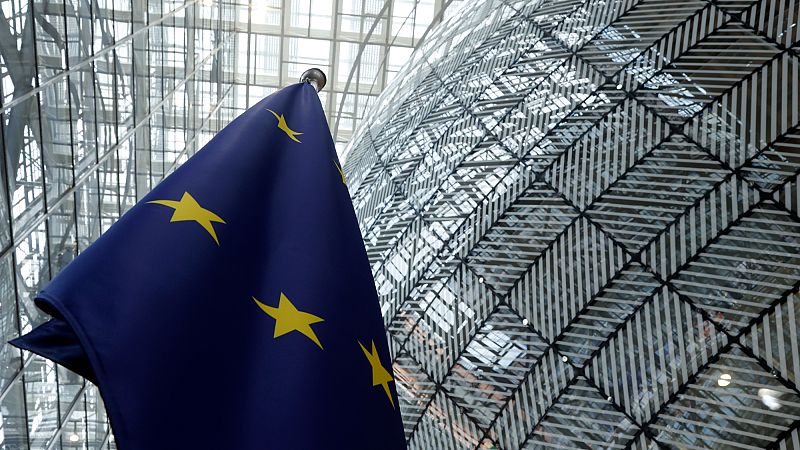
Investors in Europe reeled from US President Donald Trump’s tariff threats on Monday morning, sending the major indexes into negative territory.
As of around 9.30am CEST, France’s CAC 40 was down 0.52% at 7,788.23, the UK’s FTSE 100 slipped 0.38% to 8,941.12, and Germany’s DAX dropped 0.85% to 24,049.73.
Spain’s IBEX 35 fell 0.80% to 13,897.80, while Italy’s FTSE MIB dropped 0.86% to 39,726.27.
The STOXX 600 slid 0.48% to 544.73 and the STOXX 50 fell 0.83% to 5,338.57.
The movements come as EU trade ministers are meeting on Monday morning to discuss President Trump’s surprise announcement of 30% tariffs on the European Union. Trump shared the plans on Saturday and said that the same rate, set to kick in on 1 August, would be applied to goods from Mexico.
European officials have been working to secure a deal with the US after the president threatened a 50% tariff on EU exports in May, up from an initially proposed 20% rate. President Trump then retracted the threat of a 50% duty, although retained separate tariffs on exports like steel, aluminium, and cars.
In response to Trump’s announcement over the weekend, the president of the European Commission Ursula von der Leyen said the EU would not impose retaliatory tariffs on US imports before 1 August, allowing time for negotiation.
Denmark’s foreign minister, Lars Løkke Rasmussen, also told reporters ahead of the meeting on Monday: “We shouldn’t impose countermeasures at this stage, but we should prepare to be ready to use all the tools in the toolbox.”
He added: “So we want a deal, but there’s an old saying: 'If you want peace, you have to prepare for war.'"
Maroš Šefčovič, the EU's trade representative in its talks with the US, also said on Monday that negotiations would continue. “I’m absolutely 100% sure that a negotiated solution is much better than the tension which we might have after 1 August."
He told reporters in Brussels: “I cannot imagine walking away without genuine effort. Having said that, the current uncertainty caused by unjustified tariffs cannot persist indefinitely and therefore we must prepare for all outcomes, including, if necessary, well-considered proportionate countermeasures.”
In light of US isolationism, the EU is also looking to expand trade with alternative partners. Leaders from the bloc will travel to China for a summit later this month, seeking to promote stronger relations despite disagreements over the alleged “dumping” of cheap Chinese goods in Europe. This accusation prompted the EU to impose its own tariffs on Chinese goods last year.
While in China for the summit, EU leaders will also be courting other Pacific nations like South Korea, Japan, Vietnam, Singapore, the Philippines, and Indonesia, whose prime minister visited Brussels over the weekend to sign a new economic partnership with the EU.
The downbeat investor sentiment in Europe also comes despite pledges to increase defence spending. France’s president Emmanuel Macron on Sunday pledged to raise France’s military spending by €6.5 billion over the next two years. Macron said the 2026 defence budget would be raised by €3.5bn, and another €3bn in 2027.







